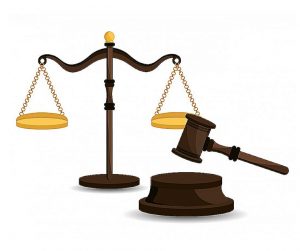Differences Between Law And Statute: The Institution of a recognized body known as the Government or Governing body came as a result of the need to have a more harmonious leadership structure that would eliminate the constant anarchy that would arise where leadership is open for all and sundry and subject to survival of the fittest and where the strongest rule over the weak.
An administration based on survival of the fittest and of the strong and mighty, the weak and vulnerable would not only be ruled over by the strong but would be trampled upon, marginalized, deprived and sometimes preyed upon by the strong and mighty. In the solemn bid to avoid anarchy, and unfair competition in the quest to seize and administer political and economic power, some systems of government has been developed.
Some of these systems of government has overtime gained acceptance and massive popularity across the globe. We have systems of government like, monarchy, Democracy, Parliamentary system of government, Republican system of government, Unitary system of government, Presidential system of government, Federal system of government, Military government and many others. These systems of government are not the same, though some of them share some similarities.

These systems of government are not entirely the crux of this article however, a brief definition of this systems of government would help us gain some insight and further help us understand the topic of this article. Succinctly, Monarchical system of government is a type of government where the political powers in a definite territory or State is under the command and control of a monarch often referred to as King, Queen, Duke and so on while a Democratic system of government where the political powers are considerably vested in the larger majority of the citizens who then decide to set up a minor group of trusted individuals in confidence to represent the interest of the majority.
Parliamentary system of government is where the constitutional political powers of a definite or sovereign territory is under the administration of a law making body known as the Parliament and their decision is superior. Republican system of government is where the constituted political powers rest in an elected representative who is usually elected within a period of time. Unitary system of government on the other hand is where the government powers are concentrated in a single central decision making body that is usually at the top of the command chain. There are less devolution of powers to other institutions to control.

Presidential system of government is one of the most preferred system of administration worldwide. It is a system where there is an elected representative of the people known as the president who is accountable to the entire Country that elected him. The entire Country becomes his constituency. The system makes room for delegated legislation of government powers to subordinate unites with definite area and level of control. The president is usually elected for a specified duration.
Also see: Advantages And Disadvantages Of Working In A Team/Group
The Military system of government is the system where the government and political powers are vested in a central authority and person known as the military Head of State who controls the entire country based on military decrease and Edicts. There is then the Federal system of government that is as popular as the presidential system due to their liberal nature. The Federal system has to do with the division and sharing of governmental powers among federating units that has a level of autonomy on how they administer their jurisdiction however. The federating units are the Federal government which is at the head of the command chain, then below it is the State Government and below the State Government is the Local Government.

They are independent and subordinate to the Federal level. One of the major characteristics of a federal system of government is a Federal Constitution that clearly states how the governmental powers are to be shared among the federating units and also map out their area of jurisdiction. Another important feature is the division of the powers among the arms of government which are the Legislatures saddled with the responsibility of making laws, The Judiciary saddled with the responsibility of interpreting the laws made by the Legislatures and then the Executive arm of government saddled with the responsibility of executing the laws made by the Legislatures and interpreted by the Judiciary. These brings us to the different laws made by the decision making body in a federal system of government.
Firstly, the law making body is further classified based on their area of jurisdiction and the kind of law they make. There are the Federal lawmakers who make laws for the enteir Country and have their administrative complex at the federal capital territory. Then there are the State lawmakers who make laws for the various States of the federation. The laws made by the federal Legislatures are known as Statutes or Acts while the Laws made by the State lawmakers are known as Laws.
It is imperative to note that Statutes and Laws share a lot of similarities as they are both products of lawmaking process and made by law makers in a federation however, in this section, we will be looking at the differences between the Laws and Statutes made by the different law making bodies in a federation.

Recommended: Countries with the highest youth population
Main Differences Between Laws And Statutes
1. Laws are set of policy guidelines, rules and regulations made by a state legislative body why a statute are the set of rules and policy guidelines enacted through a laid down procedure by the federal Legislatures in a Federal State.
2. Laws has a limited jurisdiction. This is because, they are made by a State Legislative body for enforcement within that particular State. Laws made in a particular State has no powers outside that State unlike Statutes that are made by the Federal Legislature which are applicable to all the Federating units of the country.
Also see: Differences Between Democratic and Military Rule
3. Laws are lower in hierarchy compared to Statutes because they are made by a lawmaking body that is hierarchically lower than the Federal lawmakers.
4. Laws are assented to by the State Governor who is the Chief Executive Officer of the State and his assent constitutionally validates a law while the President of the Federation assents bills that in turn becomes statutes.
5. Laws are not as strong as Statutes because they are made by a subordinate tier of government and not the highest tier in a Federal system while statutes are made by the highest lawmaking body in a Federal system with more Legislative powers.
Also see: Differences Between Citation And Reference
6. Statutes made by the Federal Legislature are not easily amended, a good example is the Federal Constitution unlike State laws that could be voted against through a less cumbersome procedure.
7. Statues can be used to shield a nation from foreign interference because it is made for the whole country and has the interest of the entire country factored at the time of it enactment unlike State laws that only factors the interest of a particular State at the time of it enactment.
8. The State law makers are bound by the provisions of the Statute to make laws that are consistent with the Statute unlike the Federal lawmakers who only factors the interest of the Federation when making a statute not minding whether it contradicts a State law or not.
Also see: Advantages And Disadvantages Of Oral Communication
9. Laws derive their validity from the statute. A law made by a State Legislature must be valid when subjected to the provisions of the Statute unlike the Statute that does not derive its validity from State laws but are made based on national security and interest.
10. The statute can be used to impeach the president and the state governor ls as well as the Executives but the State laws can only be used to impeach the State But has no legal effect on the Federal Executives, Legislatures or Judiciary.
Also see: Countries with the best education system in the world
Conclusively, notwithstanding the disparities between Laws and Statutes, they remain a set of substantive rules and guidelines made through proper Legislative procedure and systematically applied as an instrument of achieving a harmonious society. Any clear violation of any of them attracts severe punishments from the Institutions established to enforce them.

Edeh Samuel Chukwuemeka, ACMC, is a lawyer and a certified mediator/conciliator in Nigeria. He is also a developer with knowledge in various programming languages. Samuel is determined to leverage his skills in technology, SEO, and legal practice to revolutionize the legal profession worldwide by creating web and mobile applications that simplify legal research. Sam is also passionate about educating and providing valuable information to people.